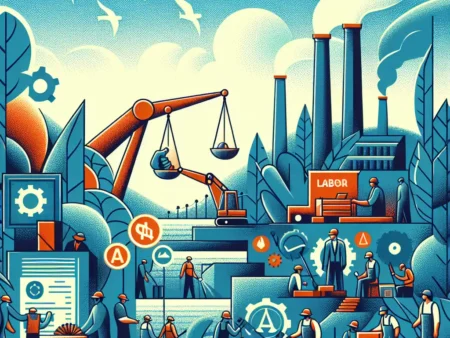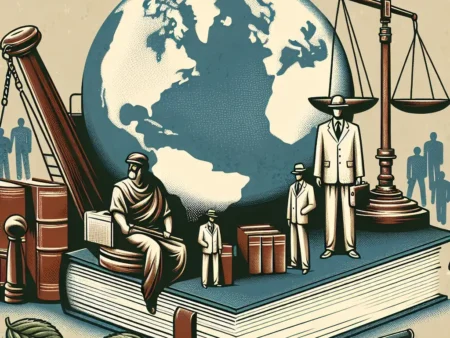Analisis kasus hukum TKI: Pelajaran penting untuk dipelajari.
Analisis Kasus Hukum TKI: Pelajaran yang Dapat Diambil
-
Table of Contents
- Introduction
- The Plight of Indonesian Migrant Workers
- The Scale of the Issue
- Exploitation and Abuse
- Legal Loopholes and Lack of Regulation
- Key Legal Cases
- Case 1: The Mary Jane Veloso Case
- Case 2: The Erwiana Sulistyaningsih Case
- Case 3: The Siti Zaenab Case
- Lessons Learned
- Strengthening Legal Protection
- Enhancing International Cooperation
- Empowering Workers and Raising Awareness
- Conclusion
Introduction

The issue of Indonesian migrant workers, also known as Tenaga Kerja Indonesia (TKI), has been a subject of concern and debate for many years. The legal cases surrounding TKIs have shed light on the challenges and vulnerabilities faced by these workers, as well as the need for stronger legal protection and regulation. This article aims to analyze some of the key legal cases involving TKIs and draw lessons that can be learned from them.
The Plight of Indonesian Migrant Workers
The Scale of the Issue
Indonesia is one of the largest labor-exporting countries in the world, with millions of its citizens seeking employment opportunities abroad. The lure of higher wages and better living conditions often drives individuals to leave their families and homes behind in search of a better future. However, the reality for many TKIs is far from what they had envisioned.
Exploitation and Abuse
One of the major challenges faced by TKIs is the prevalence of exploitation and abuse. Many workers find themselves trapped in exploitative working conditions, with long hours, low wages, and limited access to basic rights and protections. Some are subjected to physical and emotional abuse, while others face sexual harassment and violence.
Legal Loopholes and Lack of Regulation
The legal framework surrounding the protection of TKIs is often inadequate, leaving them vulnerable to exploitation. Many recruitment agencies and employers take advantage of these loopholes, engaging in unethical practices such as charging excessive fees, confiscating passports, and providing false information about job opportunities. The lack of effective regulation and oversight allows these abuses to persist.
Key Legal Cases
Case 1: The Mary Jane Veloso Case
One of the most high-profile cases involving a TKI is that of Mary Jane Veloso. In 2010, Veloso was arrested in Indonesia for smuggling drugs. However, it was later revealed that she had been a victim of human trafficking and was unknowingly carrying drugs that had been placed in her luggage by her recruiter. Her case garnered international attention and highlighted the vulnerabilities faced by many TKIs.
Case 2: The Erwiana Sulistyaningsih Case
Another notable case is that of Erwiana Sulistyaningsih, a domestic worker who was subjected to severe physical abuse by her employer in Hong Kong. Sulistyaningsih’s case gained widespread media coverage and sparked outrage both in Indonesia and internationally. Her bravery in speaking out against her abuser shed light on the plight of many other domestic workers who suffer in silence.
Case 3: The Siti Zaenab Case
The case of Siti Zaenab, a TKI who was sentenced to death in Saudi Arabia for murdering her employer, raised questions about the fairness of the legal system and the lack of support provided to Indonesian workers facing legal issues abroad. Zaenab claimed that she had acted in self-defense after enduring years of abuse. Her case highlighted the need for better legal assistance and protection for TKIs facing criminal charges.
Lessons Learned
Strengthening Legal Protection
The cases discussed above demonstrate the urgent need for stronger legal protection for TKIs. The Indonesian government should work towards implementing comprehensive legislation that addresses the specific challenges faced by migrant workers. This includes stricter regulations on recruitment agencies, better monitoring of working conditions abroad, and improved access to legal assistance for workers in need.
Enhancing International Cooperation
The issue of TKIs is not limited to Indonesia alone. It requires international cooperation and collaboration to address the root causes and provide effective solutions. Indonesia should work closely with destination countries to establish bilateral agreements that protect the rights and welfare of migrant workers. This includes sharing information on recruitment agencies, coordinating efforts to combat human trafficking, and establishing mechanisms for resolving disputes.
Empowering Workers and Raising Awareness
Empowering TKIs with knowledge of their rights and providing them with the necessary skills and resources to assert those rights is crucial. The Indonesian government should invest in comprehensive pre-departure training programs that educate workers about their legal rights, potential risks, and available support systems. Additionally, raising awareness among the general public about the challenges faced by TKIs can help foster a more supportive and empathetic society.
Conclusion
The legal cases involving TKIs have shed light on the vulnerabilities and challenges faced by Indonesian migrant workers. Exploitation, abuse, and inadequate legal protection are some of the key issues that need to be addressed. By strengthening legal protection, enhancing international cooperation, and empowering workers, Indonesia can take significant steps towards ensuring the rights and welfare of its migrant workers. It is crucial for the government, civil society, and international stakeholders to work together to create a safer and more just environment for TKIs.







